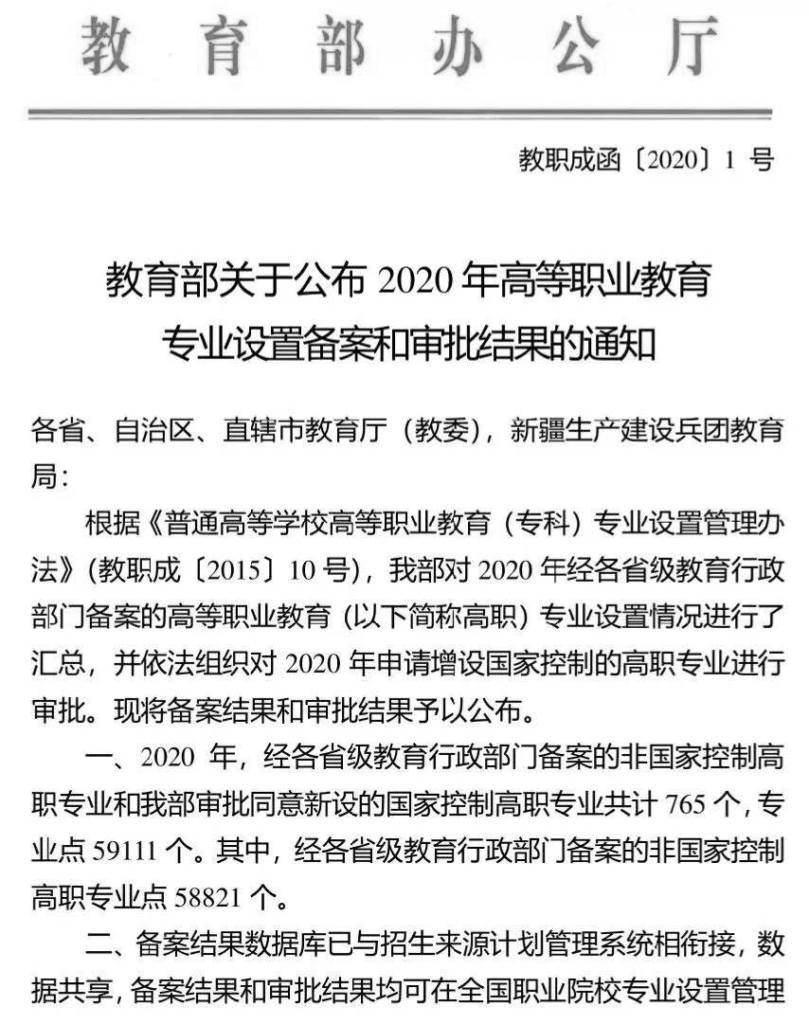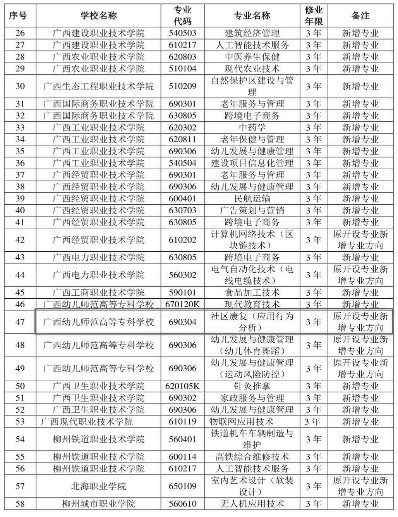ABAI Non-U.S. Affiliated Chapter Updates

ABA España
By Javier Virues-Ortega, Aida Tarifa-Rodriguez, Virginia Bejarano Ruiz, and David García González
This year we have engaged in various important activities for the field and the profession. As we get close to 40 BCBA and BCaBA certificants in the country with a certification lapse rate below 3.5%, the professional field in Spain seems to be finally gaining some traction. Over 85% of these professionals are former students of ABA España’s VCS, which has been and continues to be a key resource allowing the steady growth of the field in Spain and elsewhere. Fortunately, our VCS has recently been approved for the 5th Edition Task List. This year, we have also established a partnership with the examination and proctoring service provider Pearson VUE, which will allow students from various international Spanish-speaking communities to take our exams with the greatest standards of academic integrity.

In an effort to expand training opportunities for Spanish-speakers, this year we have established a partnership with the Valentian International University (VIU) that will help students obtain a master’s degree in psychology or education before undertaking our VCS. Students undertaking this combined program will benefit from partial credit recognition and reduced registration fees.

This year, we made donations to the Society for the Advancement of Behavioral Studies (SAVEEC), which hosted a national conference in Madrid last Fall and to ABAI to support the registration of international students during the recent online ABA conference. We have also supported editorial efforts leading to the translation into Spanish of four key behavior analysis titles stating with Miltenberger’s Behavior Modification (6th ed.) which have been published in June in eBook and print. We are also getting ready for the publication of the white book (3rd edition) in Spanish in the summer. As we write these lines the Spanish versions of Research Methods in Applied Behavior Analysis and Analyzing Ethics Questions from Behavior Analysts (Bayley and Burch) are also being finalized. These editorial efforts have been possible through various agreements established with Pearson, Routledge and Cengage earlier this year.
In addition, ABA España has been the driving force in the process of establishing a consortium with the largest behavior analysis organizations in the country, including Lovaas Foundation and SAVECC, to support professional certification in Spain. As part of these efforts we have conducted an ample survey to identify the needs and challenges of the field in Spain, the results of which will be published before the end of the year.
We have been quick to react to the outbreak of the COVID-19 pandemic supporting students in our programs on compassionate grounds. For example, examination fees have been lifted or made more flexible for students that are active health workers and for students from Argentina, where the pandemic shocked the economy. We have also supported two research projects to promote important health behaviors including the reduction of face touching and increasing mask wearing among children with autism (search the hashtag #MaskWearingProject on our social media). In addition, we have partnered with several hospitals and public health institutions in Spain to publish a set of self-protection guidelines for ABA therapists, which will be published through our website and social media outlets this summer. We expect that these efforts will continue at least for another year as we gradually adapt to the challenges that the pandemic has posed to our lives.
ABA Lebanon
By Asmahan Saleh Khalil
The Association of Behavior Analysis in Lebanon (ABAL) has had a stirring year. The Lebanese people, government, and overall national stability have gone through some challenges starting in October 2019, which led to a revolution and overturn of the government. Given this situation, ABAL held on tight to its mission and vision of dissemination of ethical practices, guiding parents and professionals, and bringing the community of behavioral analysts together. Here is what we able to achieve despite excruciating circumstances. We held our first member meet-up, which was an opportunity for members and all those interested in the field of behavior analysis, including parents and professionals to meet and greet and get to know more about ABAL’s mission. We offered attendees the chance to sign up as members, which increase of our member count. Some of the membership offers are:
- 25% discount of all ABAL events and conferences.
- 20% discount at all ELC stores when membership card is presented.
- 25% discount of individual workshops and trainings offered by ABAL board members (see list on our website).
- One free consultation with one of the ABAL board members.
- Eligibility for the yearly Excellence in Behavioral Analysis Award.
Membership is applicable to parents, students, and professionals who are studying, applying, or supporting the use of ABA into different practices.
This year, we conducted a poll on some important chapter matters such as willingness to attend workshops and conferences given the country’s political climate. The poll was a success and stirred up some very important conversations regarding the state of ABA in Lebanon. Moreover, ABAL is now an ACE provider offering CE credits for those who attend any of its events. ABAL was honored to host Dr. Annie Baghdayan in a workshop titled, “Exploring Adolescence and Behavior,” on March 7, 2020. Dr. Baghdayan is the director of the National Center for Disability Education and Training. She discussed employability and high school transitions along with Dr. Fadi Maalouf, who is a renowned psychologist in the field. The workshop concluded with a panel discussion that included an expert in the field of employment of adults with special needs, a university program coordinator, a parent, and Dr. Baghdayan. ABAL is proud to announce that two of its board members have recently become BCBAs: Talal Nasser and Jennifer Chebli. In these turbulent times, ABAL has been consulting with its honorary consultant, Dr. Linda Slim, who is renowned for her exceptional work in the field on how to best proceed and carry through with events.
ABA Saudi Arabia
By Faisal Alnemary and Mona Alhaddad
ABA Saudi Arabia was accepted as an affiliated chapter of ABAI on May 31, 2013. Six years since the establishment of the chapter, ABA Saudi Arabia is taking responsibility to commit to its mission statement.
ABA Saudi Arabia was established with the mission to disseminate information about the science of behavior analysis and support the development of and access to behavior analytic services for people in need. To accomplish this mission, the chapter seeks to support the development of graduate opportunities for appropriate candidates in Saudi Arabia, plan and support continuing education (CE) for practicing behavior analysts, and advocate for the right to community-based access to behavior analytic services through governmental and regulatory channels.
The founding and current officers are Faisal Alnemary, Ph.D, BCBA, president; Mona Alhaddad, MA., BCBA, vice president, Shayma Omar, Ph.D, secretary; Shumaila Jaffrey, treasurer; and Amal Abulayiah, BS, BCaBA, publication and marketing officer.
ABA Saudi Arabia currently has a membership of around 70 members, consisting of practicing behavior analysts, students (graduate and undergraduate), speech pathologists, and community-based individuals interested in behavior analysis in Saudi Arabia. As one aim of our mission is to disseminate the science of ABA to different communities in Saudi Arabia, the chapter continues to provide workshops to people in the community including parents, practitioners at intervention centers (e.g., Ministry of education, Ministry of Health, HRH Prince Mohammad Bin Salman Autism Centers, Jeddah Autism Center, Saudi Association for Autism, Jeddah Institute for Speech and Hearing), and school teachers. Many who attend these workshops are looking for certification in ABA through accredited short courses or intense seminars (e.g., RBTs). Due to this fact, the chapter’s mission is to keep spreading awareness of ABA and credentialed people who are qualified to provide ABA services. This year, the chapter is committed to continue its effort in regulating the practice of ABA and its profession through the Saudi Health Council (SHC) and the Saudi Commission for Health Specialties (SCHS). The chapter is continuing the efforts that were taken last year (mentioned in the previous report), when Dr. Alnemary, BCBA, (on March 11, 2020) on behalf of all practicing behavior analysts in Saudi Arabia, presented a proposal to the Health Academy, which is under the SCfHS to establish the Saudi Board for Behavior Analysis. Their feedback was that the submitted version needed additional information about the ranks, points of entry, curriculum, supervision description, competencies and CEs, and so on.
We are committed to informing members about the chapter’s activities; most of our meetings involve moving the chapter forward. For example, biweekly virtual meetings have been held to discuss and work on the application to SCfHS. In addition, several workshops and lecture series have been presented to raise awareness about behavior analysis in Saudi Arabia. The chapter has also planned with some members ( BCBAs) to deliver free workshops through virtual classes/meetings during the autism awareness month in April. This event is corresponding with the shutdown of centers and schools due to coronavirus and as a result, the chapter established a taskforce to start providing short lectures, workshops, and sessions on virtual classes to train parents and guardians on crucial skills and techniques for their children who are affected by the shut down.
Carrying out our mission to disseminate ABA to the Arabic-speaking community, ABA Saudi Arabia is heavily involved in translating ABA-related documents. This year, we added the BACB Experience Standards and Forms, in addition to previously translated documents:
- Compliance code
- Glossary version 1
- Glossary version 2
- 4th edition task list RBT task list
- RBT competency assessment
Furthermore, the Chapter played a role in highlighting the achievements of the Dar Al-Hekma University Master of Science Program in ABA.
Currently, the chapter is focusing on collaborating with designated sectors in health and education to provide short courses and training for their employees in addition to designing an accredited degree (e.g. certificates) in ABA.
Finally, we are planning to recruit new officers due the relocation of the previous chapter officers, followed by marketing the chapter and recruiting new members in an effort to increase the number of training to promote awareness about ABA.
ABA Saudi Arabia welcomes members at the full, affiliate, and student levels. Membership is open to anyone interested or actively engaged in behavior analysis. For the time being, until we become an associate chapter, any person wishing to become a member must submit a completed application form and pay annual membership dues. Contact abasaudiarabia@gmail.com or malhaddad@dah.edu.sa for membership information.
ABA Switzerland
By Silja Wirth and Charlotte Escané
This year, we created a new website and new content, thanks to Ian Grant’s (student representative) input and experience in this field. As one can see, the website (www.abaswitzerland.ch) is user friendly and includes more information than our previous version. The objective is to give information to parents, professionals, potential behavior analysts, and of course, Swiss behavior analysts. In order to connect with potential clients and professionals in the field, a list of professionals has been created and is freely available on the website. Also, people can now become members and register for webinars online. Most of the French and German translation are done, while Italian translations are coming soon. Members can access to a 2-year membership if they enroll this year. Due to a late announcement of the membership renewal cycle, the committee decided to offer this opportunity.
Our former president, Amanda Rebert BCBA, left and her substitute Silja Wirth, BCBA, took over the position. Silja is our first Swiss German president, as our two previous presidents came from the Swiss French part of Switzerland. The committee, re elected in 2019, includes Silja Wirth, president; Erika Glaus, vice president; Charlotte Escané, secretary, and Marie Leclerc, treasurer; and a new student representative, Ian Grant. Ian has shown his interest in our association while giving his time to create and set up our website and new payment system.
The committee has a monthly meeting to discuss the ongoing and future actions for our association and members. One of the committee’s commitments is to organize webinars each year. In 2019, we welcomed webinars by Jennifer Holloway (social skills), Jacob Sadavoy (the ethics of the use of escape extinction) and Bridget Taylor (observational learning). The committee already has potential speakers in mind for next year.
Another improvement in 2019 was a full review of our bylaws. Our original bylaws were created in 2012 and didn’t match our current reality. Additionally, a team of volunteers updated the two existing German translation of behavior analytic terms available on the BACB website. This effort included combining terms that had two translations and translating new terms required by the board. A French team updated the French translations.
This year, ABA Switzerland members presented at an event organized by a local, private ABA center. The two presenters discussed social skills and the chapter provided CE opportunities for the event. The committee attends every international seminar organized by OVA in order to be able to provide CE opportunities.
Association for the Advancement of Radical Behavior Analysis
By Gianluca Ghezzi
In 2019–20, the Association for the Advancement of Radical Behavior Analysis (AARBA) has been actively involved in several exciting initiatives regarding ABA community, education, public policy, research, and organization. We are glad to share our accomplishments from the past year and present our goals moving forward.
Dissemination and the ABA Community
The chapter took part in ABAI’s 45th Annual Convention in Chicago (May 24–28), where members and chapter leaders attended several interesting symposia and panels, including three sessions that AARBA members presented in. During the Affiliated Chapter Leadership Training, we met with Michael Dorsey, as well as representatives from several U.S. and international chapters, and listened carefully to recent updates in our science. On Saturday morning, our chapter president, Fabio Tosolin, received the SABA Award for his career efforts in disseminating ABA and OBM. It was an honor for us to have our president accept this award in company of other inspiring 2019 SABA awardees, like Liliana Mayo’s and her heart-warming Centro Ann Sullivan del Perú and posthumous award winner Kurt Salzinger.
Additionally in 2019, we were honored to be represented at the Cambridge Center for Behavioral Studies (CCBS) Board of Directors and Trustee Meeting in the splendid setting of The Chicago School of Professional Psychology, where we met with international colleagues, friends, and fellows.
We held the 13th edition of our Scientific European Conference on Behavior-Based Safety and Performance Management Conference in Villa Foscarini-Rossi at Stra (Venice, Italy) on June 20, 2019. The session had more than 300 people in attendence, most from OBM-related fields such HSE managers, HR managers, consultants and work psychologists. However, clinical psychologists and therapists were represented as well. During the event, we hosted international OBM guest speakers Bob Cummins, consultant at SODAK (UK), and Sigurdur Sigurdsson, one of the CCBS accreditation commissioners for behavior-based safety (B-BS) processes that was involved in the 2018 Italian multisite paper factory Ahlstrom-Munksjo Gold Accreditation. As far as behavior analysis applied to clinical fields was concerned, Leasha Barry and Dayna Beddick (University of West Florida) presented on the chapter’s Verified Course Sequence (VCS) land ater discussed the practical opportunities of ABA intervention.
At last, in October 15–17, we renewed our commitment to Ambiente-Lavoro, the biggest Italian fair about environment and safety at work. In Bologna, we held three presentations about Behavior-Based Safety protocol in general, Behavioral Leadership and Safety Driving, so to keep promoting ABA technologies among public and private companies/institutions.
Higher Education
In late November 2019, with the support of Dr. Leasha Barry and Dr. Dayna Beddick, we organized AARBA’s first VCS. Given challenging national attitudes toward the adoption of ABA techniques, structured international courses like are essential to bringing knowledge and competence to Italian health and learning facilities. The coronavirus outbreak in late December changed our plans for this initiative, but we are moving forward with enthusiasm to start our VCS as soon as possible and to include all 10 of AARBA’s and the Associazione Italiana di Analisi e Modificazione del Comportamento e Terapia Comportamentale e Cognitiva (AIAMC) Schools recognized by the Italian Ministry of Instruction, University and Research.
Moreover, between November 2019 and January 2020, we held the 36th edition of our 80-hour B-BS post-graduate course, where we trained another class of 25 safety and operations professionals.
At the moment, we are very excited about the opportunities represented by upcoming the BACB 5th Edition Task List for VCS, which will put Italian students in the position to appropriately respond to families’ needs in a manner in line with more ABA-friendly countries. Because our 80-hour B-BS post-graduate course is specially designed for the construction sector, that work should begin next summer.
Last summer, we started a campaign to raise awareness about cyber addiction in collaboration with an elementary school from Milan, in order to teach parents how to identify dangerous habits (in terms of behavior frequency and length) and reinforce and promote healthier alternatives. Under the aegis of Rotary Club Milano, we are still taking part in a series of lectures where AARBA members contribute—alongside journalists, judges and other professionals—to research and interventions based on ABA principles.
Public Policy/Legislation
Recently, we were able to get AIAMC included in the official register of Italian scientific medical societies, for which the Ministry of Health of the Italian State requires specific guidelines for evidence-based treatment of every pathology (as stated by Italian law n. 24/2017, also known as “Gelli Law”). These guidelines (e.g. for autism spectrum disorder, phobias, etc.) are mandatory for Italy’s entire national health care system. The inclusion in the register is important because it means that if, for example, an Italian psychologist does not comply with national guidelines for providing certain treatments, they can be sued by the Italian State.
Moreover, we are currently working to get AARBA accepted into the Federation of Italian Medical-Scientific Societies, which includes about 190 scientific associations. This would not only increase our opportunities to collaborate on shared goals, but to play a meaningful role in influencing the Italian State’s decisions, thanks to the greater prestige and power of medical societies have in comparison to psychology societies.
Research Projects
As far as research is concerned, in collaboration with the Polytechnic University of Milan, we continue to provide assistance with some master’s degree thesis research. In 2019, we supported three interns working n two separate university research projects in B-BS.
The first project focused on deepening the difference between baseline versus feedback phases and between the frequency of workers’ safe behavior during the day (when “preposto”, something similar to shift leader with legal responsibilities in Italy, is present) and at night (when “preposto” is absent). Research was conducted near Turin, in a big plant of a multinational company that has its core-business in the production and sale of tires. Results showed that data improved from baseline to intervention phase, as frequently reported in the scientific literature, and that the bigger frequency of safe behaviors was recorded during the day. Low data solidity could have played a consistent role, especially in this second unexpected, counterintuitive result.
The second project focused not only on the difference between the baseline and intervention (feedback) condition, but also on the difference between immediate and deferred feedback. In particular, the difference between 1-to-1 peer feedback delivered just after a behavioral observation with a checklist, and a biweekly department safety meeting feedback provided by safety leader. This research was conducted near Pavia, in two separate-but-close sites of a multinational specialized in HVAC and HPAC manufacturing.
Intervention effectiveness was proved in both cases (immediate and deferred), but deferred feedback was associated with a bigger increase in the frequency of safe behaviors among employees, maybe due to explicit and continuous goal setting, due to the role of safety values shared through verbal behaviors during periodic meetings that could enhance self-control, and to peer pressure. The combination of both kinds of feedback showed further improvement in each of the two experimental conditions.
Company Consulting
AARBA continues to support major Italian and multinational companies with a continued effort to provide training and OBM consulting.
The chapter is working hard on several fronts in order to promote ABA practices and technologies in public and private institutions, with the hope of achieving increasingly positive results. See you next year!
Behaviour Analysis in Ireland
By Helena Lydon
Conference Reviews 2018-2019
The 13th Annual conference of the Division of Behavior Analysis (DBA), Psychological Society of Ireland for 2019 was a great success. The event took place in Trinity College Dublin on May 10–11, 2019. The DBA is delighted that this meeting is growing in attendance each year. As in previous years, the meeting was well supported by the behavior analysis community, with leading experts from Ireland and the US presenting and in attendance.
Thirteenth Annual Conference in Galway
The conference was well attended by academics, clinicians, and students from Ireland and Europe. The conference opened on Friday, May 10 with three workshops. The first workshop was presented via video stream by Professor Pat Friman (Boys Town, University of Nebraska School of Medicine) titled, “Anxiety and the Autism Spectrum: A Behavior Analytic Approach.” This was followed by Professor Andy Lattal (West Virginia University), who delivered a workshop titled, “Mind the Gaps: Implications for Application of Missing Pieces from Behaviour Principles.” The day concluded with a workshop by Dr Darnell Lattal (Context Management. Inc.) entitled, “Striving to Achieve Ethical Business Outcomes Using A Behavior-Analytic Perspective. Groundhog Day or Carpe Diem?” The evening closed with a social event. The second day consisted of a series of three parallel sessions on a wide variety of both experimental and applied research. Presentations were of extremely high quality and covered a diverse range of subjects including: reinforcement considerations, novel methodologies for exploring complex human behaviour, staff training and support, assessing ABA interventions across diverse populations and settings, basic and applied advances in quantifying verbal stimulus relations, self-management of healthy lifestyle choices, and assisting people with an intellectual disabilities. Sessions were interspersed by keynote speeches from Andy Lattal (“A Tale of Two Rats: The Backstory of an Insightful Cartoon”) and Darnell Lattal (“Beyond Behavior: OBM in the 21st Century Workplace”). The second day ended with Patrick Friman;s talk, “Two Unifying Themes for Behavior Analysis,” delivered via video stream.
Upcoming Events
In 2020, DBA held its 14th Annual Conference at the Galway Bay Hotel on April 3–4. We were delighted to be joined in person by Professor Pat Friman, Dr. Berglind Sveinbjörnsdóttir (Reykjavik University, Iceland), and Dr. Stephen Gallagher (Ulster University, Northern Ireland).
DBA Membership
The Psychological Society of Ireland (PSI) is the body representing professional psychologists in Ireland. The DBA represents recognised qualified professionals in the science of behavior analysis. Those wishing to apply for membership must be members of PSI and hold a postgraduate qualification in behavior analysis recognised by the Division Committee. Relevant experience will also be considered. Membership application forms can be found on the PSI website www.psychologicalsociety.ie/division-behavior-analysis.
Bermuda ABA
By Erica Smith and Thea Furbert
It would be an understatement to say that 2019 was an incredible year for Bermuda Association of Behavior Analysis (BABA) and generally the behavior analyst profession in Bermuda which saw BABA’s members engage in exciting initiatives throughout the year!
BABA is currently made up of behavior analysts, verbal behavior therapists, junior therapists, non- profit leaders, and parents. Through its close partnership with Tomorrow’s Voices – Bermuda Autism Early Intervention Centre, Bermuda’s first and only autism early intervention center, BABA continues to grow its members’ skills, experiences, and numbers.
BABA’s membership in 2019 grew slightly by two members, however the growth in the awareness and use of ABA in Bermuda continues to be directly linked to the development and continued sustainability of Tomorrow’s Voices Autism Centre.
In 2019, Tomorrow’s Voices celebrated its 12th year in Bermuda, validating the need for an international center providing services dedicated to those with autism spectrum disorders and developmental disabilities. Since its inception, the clinical center has hired and trained 47 professionals (Bermudian and Non-Bermudian) in the use of applied behavior analysis and verbal behavior, not to mention the thousands of parents, volunteers, students, educators, medical and allied health professionals trained and engaged through workshops, seminars, consultancies, internships, and work shadows.
The formation of BABA in fall 2011 was due mostly to the ongoing work by Tomorrow’s Voices Autism Center and continues to be sustained through this synergistic partnership, as most of the professionals who practice ABA in Bermuda are employed with Tomorrow’s Voices. In 2019, this partnership between Tomorrow’s Voices and Bermuda Association of Behavior Analysis resulted in the following seminars and training workshops being presented by BABA members—Tomorrow’s Voices’ senior verbal behavior therapist Jahnae Harvey, BCBA as well as verbal behavior therapists Melissa Myers and Vurnell Ball—on subjects related to ABA and special needs:
- February 11, 2019: “Behavior Management Strategies for the Classroom”
- February 20, 2019: “The Verbal Behavior Approach”
- April 17, 2019: “The Road to Transitioning to Adulthood” featuring International Speaker Mike Wasmer
- June 19, 2019: Natural Environment Teaching (Play, Daily Living and Leisure Skills)—We Can’t Have All Work & No Play”
- September 4, 2019: “Intro to ABA”; “Show Me What You Know, Assessments”; “Using Reinforcement to Shape Behavior”
- September 5, 2019: “Intro to ABA”; “Let’s Put That on Paper, Data Collection Methods”; “Antecedent vs. Consequence Strategies”
- October 15, 2019: “Let’s Put That on Paper, Data Collection Methods”
- October 21, 2019: “Who Are We/Intro to ABA” TED Talk
- October 23, 2019: “Inclusion: Together We Unite!”
- November 20, 2019: “Food Fights, Managing Picky Eaters”
In 2019, a total of 510 persons attended the 10 professional development workshops, consisting of parents, teachers, health professionals, government officials, and others in the community.
BABA member, Senior Verbal Behavior Therapist, Jahnae Harvey, BCBA was also invited to be the motivational guest speaker for the seniors’ first day of school assembly at one of Bermuda’s local high schools.
Ms. Harvey is a fierce advocate for professional development opportunities and continues to provide two members with supervision in their quest to become BCBA’s while also supporting the development training for young professionals progressing from junior verbal behavior therapists to verbal behavior Therapists.
In August 2019, BABA Members, and Tomorrow’s Voices’ Chair/Co-Founder Thea Furbert and Tomorrow’s Voices’ Deputy Chair Erica Smith, visited two overseas Centre’s to grow in their understanding of international best practice. They visited the Grant A Gift Autism Foundation and the UNLV Medicine Ackerman Autism Centre both in Las Vegas, Nevada. It was fantastic to talk with president and CEO, Ms. Terri Janison, of Grant A Gift Autism Foundation and learn about their programs and the great work they are doing for their community. They discussed their many programs that shared the same principles and techniques as Tomorrow’s Voices in Bermuda. This international exposure and seeing other Autism Centers firsthand has helped grow our network of service providers as well as validate the therapy and services we provide to our community here in Bermuda. This new relationship will last a lifetime as we share ideas and research to better support those touched by autism.
Ms. Furbert and Mrs. Smith also had the pleasure of visiting Building Pathways in Winter Garden, Florida, in September 2019, a program created by Ms. Patty Myers, a mother of an 18-year-old son on the autism spectrum. The program is geared to clients with autism who are 16 years and older and provides a social skills program, a day program, and a summer camp. The program is instrumental in providing young adults on the spectrum with the social skills, self-help skills and job readiness skills they need to reach independence and the job opportunities they deserve. The program is facilitated by board certified assistant behavior analysts to ensure it is driven by best practice. It was a pleasure to meet Patty and to see her great life enriching program and to understand the necessary tools and methods that are needed to meet the needs of young adults on the spectrum.
In October 2019, BABA members, and Tomorrow’s Voices Verbal Behavior Therapists, Melissa Myers and Vurnell Ball, attended the 37th Annual Autism New Jersey Transition Conference and also visited The Bancroft School both in New Jersey. While on this trip, the members were able to experience and learn from an Autism Centre and School that has a much larger capacity than Tomorrow’s Voices, as well as gather clinical knowledge from the workshops at the Conference in the aim of future professional growth for themselves and Bermuda in 2020.
Additionally, in October 2019, Ms. Furbert and Ms. Harvey attend the 13th Annual Autism Law Summit in Jackson Hole, Wyoming. They plan to use the knowledge that they gathered at the Summit to grow Bermuda as a whole regarding disability legislation and legal policies. While on this trip Ms. Furbert was surprised with being awarded with the International Advocacy Award.
As a direct result of the leadership of BABA members Ms. Furbert and Ms. Harvey, Tomorrow’s Voices also won the 2019 Global Health & Pharma Social Care Award for Best Early Autism and Learning Disability Support Centre – Caribbean. The 2019 Social Care Awards Magazine, which was circulated worldwide to 260,000 subscribers. The members are honored for Bermuda to be recognized with both awards.
BABA and thereby Tomorrow’s Voices, are honored to continue to lead the way with regards to growing the ABA profession in Bermuda. BABA members continue to serve on the Bermuda Government’s ASD Taskforce providing a behavior lens to addressing the issues facing our Island’s students and adults with ASD and related disorders. Given the very small size and relative isolation of Bermuda, we see this continual growth as validation of our commitment to advancing ABA in Bermuda.
Looking ahead, we will continue to grow the profession in 2020. One way to do this is through continuing to grow the knowledge and skills throughout the Island. Professional development workshops planned for 2020 focused/will focus on the following topics:
- February 19, 2020: “Discovering Autism and the Triumphs That Are Possible”
- June 17, 2020: “It’s More Than Just A Theory”
- September 16, 2020: “Coming Into The 21st Century. It Is All About Technology”
- November 18, 2020: “Keep Calm and Carry On, Looking at the Whole Picture—Anxiety & Autism”
Another way we will grow the profession is through looking to our international partnerships to help us continue to implement best practice behavior. Our desire is to increase the number of BCBAs practicing in Bermuda.
We have grave concerns over BACB’s decisions to no longer offer international certification, as this will have a direct impact on our Island’s current BCBAs and those striving toward certification. As such, we will work closer with ABAI to develop solutions to this real-world professional challenge.
We will explore applying for the SABA Public Awareness and International Development Grants for 2021 to assist us in raising further awareness around BABA and the benefits of membership. In this regard, BABA would like to grow its outreach and membership base and is actively seeking persons, especially those beyond Tomorrow’s Voices, interested in the ABA field to join as part of BABA’s executive as well as general members.
Anyone interested in becoming a member of BABA or finding out more information should contact Erica Smith or Thea Furbert at (441) 297-4342 or info@tomorrowsvoices.bm.
British Columbia ABA
By Katie Allen
The British Columbia Association for Behaviour Analysis (BC-ABA) has had quite a productive year! We are excited to share our accomplishments and future directions with other affiliated chapters.
BC-ABA is made up of 12 elected board members who meet 10 times per year to advance behaviour analysis in the province of BC. We have a strong and active board with wonderful diversity in our abilities. Our membership also demonstrates a great diversity of behavior analysts, and those working in the field of behavior analysis. Licensure of BCBAs and BCBA-Ds has been an ongoing area of interest for BC-ABA. BC-ABA is working closely with the College of Psychologist of British Columbia and in conjunction with the provincial government’s Ministry of Health in regulating the field of behaviour analysis in BC. We hope to continue moving this forward as progress has been slow but promising.
In May 2019, BC-ABA partnered to present CEs at a three-day presentation from Dr. Greg Hanley focused on the practical functional assessment and its application. He returned for follow up presentations in November to further detail the utility of the PFA within a school setting.
BC-ABA’s annual conference was held in March 2020 at the University of British Columbia with a fantastic turn out. This year we hosted Dr. Patrick Friman, who was kind enough to deliver three presentations focused both toward professionals and parents. His topics included clinical diversity in the field of applied behavior analysis, and EIBI, ASD, and the forward march of applied behavior analysis. It was a great turnout both in person and with members streaming online.
Two scholarships were offered this year at the masters and doctoral level for students to present their research at next year’s conference. Amy Tanner received our doctoral level scholarship and Serina Ando received the masters level award. Both received a $1,000 prize to assist with their research. Please visit our website for more information about the scholarships and how you can apply in the near future (www.bc-aba.org). The call for papers for the 2021 conference will go out in October 2020. We welcome anyone to submit and look forward to expanding the variety of presentations we can offer.
Next year’s events will be posted on our website once details are final, so please visit our website to see what is coming up for BC-ABA. This year (2020), will be the 11th year BC-ABA will be presenting a poster during the international Expo at ABAI. This is a wonderful event and a great way to find out first-hand about BC-ABA and its current activities.
BC-ABA’s membership continues to maintain approximately 300 members across full, associate, and student memberships. There are multiple benefits to being a BC-ABA member. Our membership fee has not increased since the inception of the chapter, but the benefits to being a member improve each year, including access to conference presentation slides; access to BC-ABA meeting minutes for up-to-date information regarding the chapter; current information and news through our monthly emails; and the ability to network with other BC-ABA members. All this for only $30 CND per year!
BC-ABA is unique in that we have a Student Alliance committee run by our elected student representatives. It is a seven-person committee made up of students enrolled in behaviour analytic programs in BC. They work at advancing behaviour analysis among the student population and host various events throughout the year to facilitate this goal. BC-ABA continues to be an active chapter affiliate of ABAI and is honoured to be able to represent ABAI in the province of British Columbia.
Central China ABA
By Dehua Guo
Autism spectrum disorder (ASD) is a neurological and developmental disorder characterized by difficulties with social interaction and communication, and by restricted and repetitive behavior. The scientifically-validated, evidence-based, mainstream and effective ASD treatment methods currently recognized all over the world includes applied behavior analysis (ABA) and a series of methods derived from it.
For the better training of professionals and the development of ABA, China Association of Persons with Psychiatric Disabilities and Their Relatives (CAPPDR) has established ABA working committee through nationwide ABA resource integration to conduct ABA research, certification training, professional training, practice, and promotion throughout the country.
After 3 years of preparation, the ABA major established by Guangxi College for Preschool Education (GXCPE) was approved and filed for record by Ministry of Education of the People’s Republic of China, and GXCPE has become the first college in China to establish an ABA major.
ABA professionals are in short supply all over the world. This shortage is particularly acute in China, which has seen a rise in the cost of ABA services, uneven quality of services, and a lack of supervision. According to the BACB website, as of January 2020, China counted 112 BCaBAs, 32 BCBAs, and 3 BCBA-Ds.
The establishment of an ABA major program in GXCPE is of great significance: It is the first time that ABA major was established in one of China’s colleges, which could be regarded as a milestone in the training of ASD rehabilitation and education professionals and is of practical significance in quality improvement of rehabilitation and education for children with special needs, such as children with ASD. It will not only ease the shortage of ABA professionals in China, but also represent the gradual establishment of a localized ABA professional training system.
According to Dr. Dehua Guo, professor in special education, person in charge of the application, professional leader of the major program, and secretary-general of CCABA, the program aims to train front-line ABA professionals with good operational skills, in order to provide practical ABA professionals for special schools, resource classrooms in general schools, and rehabilitation and education agencies.
With the help of a 20-people ABA professional team, GXCPE has approved and initiated and ABA teaching material writing project of three textbooks, established a provincial ABA practical training and social service base, as well as school-enterprise cooperation and production-education integration bases with more than 20 schools (agencies), and is now well placed for ABA teaching, research, practical training, and social service. Qualified as “ASD Rehabilitation and Education Professional Training Base of CAPPDR” and “ABA Professional Training-Practice Base of CAPPDR” in 2019, GXCPE is on its way to becoming an important platform for ASD and ABA professional training, research and social practice in China.

French ABA
By Arthur Prével
The French Association for Behavior Analysis (French ABA) promotes the development of behavior analysis in France and in the Maghreb (Tunisia, Morocco, and Algeria). Its goal is to support the national and international development of research in experimental and applied behavior analysis at the University of Lille Nord de France. The chapter also supports the University of Lille’s master’s program in experimental and applied behavior analysis, a unique program in France for training new researchers and professionals in behavior analysis. This master’s program is completed by a qualification (i.e., a DU degree) to train professionals (psychologists, speech therapists, teachers) to behavior analysis. Finally, the chapter supports a network of French associations of professionals and parents devoted to the development of applied behavior analysis to help patients with autism or other developmental disorders. In 2019, French ABA continued to support students, professional and parents in behavior analysis. Additionally, four Ph.D. students from the research program in behavior analysis at the University of Lille successfully defended their thesis, and new international scientific collaborations have been developed in the USA, Belgium, and UK, increasing the scientific network of the association. French ABA aims at organize a new conference centered on experimental and applied behavior analysis in 2020 or 2021.
Icelandic ABA
By Berglind Sveinbjörnsdóttir
The Icelandic Association of Behavior Analysis (ICEABA) continues to promote the development of behavior analysis as a basic and applied science in Iceland and introduce the applications of behavior analysis to professionals and students alike. We are a small and growing association of 71 members. A part of the association´s purpose is to introduce the different behavior analysis master´s and doctoral programs available to Icelandic students. Applied behavior analysis has a longstanding and well established footing at the University of Iceland and more recently in the University of Reykjavik. Some students even opt to do postgraduate research in behavior analysis in Iceland. Traditionally, Icelandic students have completed their graduate studies in applied behavior analysis abroad, such as in the US, UK, and Norway. The options for Icelandic students have recently expanded as Reykjavik University now offers an MSc program for 20 students each year in clinical psychology with a BACB-certified course sequence in applied behavior analysis, with the fifth group graduating this year. In addition, Reykjavik University started an MSc in applied behavior analysis in the fall of 2019. This program includes the 5th Edition Task List of the BCBA verified course sequence. Finally, University of Iceland will start an MSc in applied behavior analysis in the fall of 2020. The association places emphasis on informal meetings where members can share information on research and work in the field. We find this very important for the vitality of our group. Our coffee house meetings and our Facebook have served as great venues for lively discussions. ICEABA’s largest event this past year was a workshop on behavior analytic services for people with acquired brain injury presented by Karl Fannar Gunnarsson who works at the West Park Healthcare Center in Toronto. ICEABA’s largest event will be in November 2020, where we will have Dr. Rebecca MacDonald and Dr. Janet Twyman as our invited speakers. The members of ICEABA are excited for the future. We aim to continue working on promoting the science of behavior analysis in Iceland and being a professional reference group for scientists and practitioners in the field of behavior analysis.
Jordanian ABA
By Mahmoud Sheyab
Even though the Jordanian ABA (Jor-ABA) is trying to revive and resume its activities especially after BACB’s decision to stop certifying individuals outside the USA, and even there were several meetings with stockholders to discuss what can be done to disseminate ABA throughout the country, the future of Jor-ABA is not certain. Jor-ABA activities included: train more individuals on the basic principles of ABA, holding awareness workshops and talks, and meet with school principals to discuss how ABA can help them manage their classrooms. In addition to these activities, Jor-ABA held a 2020 national conference.
Korean Association of Child and Adolescent Behavior Therapy
By Yunhee Shin
The Korean Association of Child and Adolescent Behavior Therapy (KACBT) is a multidisciplinary nonprofit professional association with growing membership and an increasing number of alliances with like-minded organizations. KACBT has met with the preparatory committee of the Korean Association for Behavior Analysis to discuss managing licensure of clinical behavior therapists in connection with international licensure. KACABT’s mission is to share ABA information and collaborate with behavior therapists in a field, parents, and other interested parties. Since 2009, KACBT has engaged in various activities; held many meetings, seminars and conferences; and collaborated with Daegu Cyber University. Daegu Cyber University installed a program VCS in the Department of Behavior Therapy.
Case Conference and Seminars
The 2019 Case Conference was on November 23 at Daejeon WECAN Center, South Korea. The theme for the conference was “Positive Behavior Support, Behavior Intervention for Disabilities.” The 2020 conference date has not been set at the time of this writing, but we are considering October or November of this year.
To join our chapter, membership applicants must meet at least one of the following requirements:
- Studying applied behavior analysis and intervention in a graduate/undergraduate program.
- Working as a current behavior therapist and involved in behavior analysis and behavior therapy.
- Interested in applied behavior analysis and positive behavior support.
Membership lasts for one year. Member benefits include reduced event and continuing education fees, options to post job ads or information about services on the chapter website, options to send mass emails for conference, workshop access to members-only web content and email updates, and committee opportunities.
New Zealand ABA
By Anne Macaskill
The New Zealand Association for Behaviour Analysis (NZABA) is a community of people working, teaching and researching in behavior analysis in, or with a connection to, Aotearoa New Zealand. About half of the registered members of NZABA are students, with the remainder working in research, teaching, and practice. Our main event each year is the NZABA conference held in late August. In 2019, this event was held at the University of Canterbury in Christchurch. We strive to create a supportive and engaged space for students to present their research at our conference. As a result, student presentations are always a highlight. In 2019, NZABA awarded three prizes to particularly outstanding student presentations. The Best Talk on a Topic in the Experimental Analysis of Behaviour Award was granted to Nicola Morton of the University of Canterbury for her presentation entitled, “Non-Symbolic Comparison of Intensive and Extensive Magnitudes With Added Noise.” The Best Talk on a Topic in Applied Behaviour Analysis Award was given to Jenna van Deurs of the University of Canterbury, for her talk entitled, “Treating Sleep Disturbance in Young People With Autism.” The Best Poster Award was given to David Hollands from Waikato University for his presentation entitled, “Visual Search Behaviour and the Advance-Key Procedure.” These talks exemplified the quality of research work across the basic-translational-applied spectrum conducted by NZABA members.
NZABA has been an approved continuing education (CE) provider for the BACB since 2006. This allows NZABA to support the professional development of practicing applied behavior analysts by offering CE at our conference. The recent BACB decision regarding international certification will impact applied behavior analysts practising in New Zealand, as well as programmes that currently train future behaviour analysts. NZABA has founded a sub-committee that will work on this issue in 2020. The sub-committee will seek input from relevant stakeholders and consider national, regional, and international options for supporting high-quality applied behaviour analysis in New Zealand going forward. In 2020, our conference will be held at The University of Waikato in Hamilton. Hamilton is easily accessible via the International Airport in Auckland. We welcome national and international attendees with an interest in behavior analysis. Our website (nzaga.org) provides up-to-date information about how to register and will post the conference program once available. You can join NZABA via a form on our wesite; we do not charge a membership fee. Members automatically join our emailing list and will receive occasional updates and announcements. Our facebook group (facebook.com/newzealandaba) hosts more informal discussions and shares of papers or articles of relevance to behaviour analysis.
Ontario ABA
By Kendra Thomson
The Ontario Association for Behaviour Analysis (ONTABA) continues to expand capacity, grow membership, and increase visibility among other professionals and levels of government in Ontario and Canada. Although 2019 was a very productive year, provincial changes in the autism service sector prompted the need for advocacy, which consumed considerable ONTABA resources.
Member Services & Educational Opportunities
In 2019, ONTABA provided the following member services and educational opportunities:
- With support of a grant from SABA, the Ontario Scientific Expert Taskforce for the Treatment of Challenging Behaviour completed a research synthesis on evidence-based practices for treating challenging behaviour in people diagnosed with an intellectual disability. The full report is available to the public on our website (www.ontaba.org) under the “Resources” tab, along with the comprehensive research synthesis on “Evidence-Based Practices for Individuals with Autism Spectrum Disorder” published in March 2017 by The Ontario Scientific Expert Taskforce for the Treatment of Autism Spectrum Disorders.
- The Education Task Force recently completed a white paper titled, “Applied Behaviour Analysis: Applications in Schools” that will be shared with educators and policy makers.
- The Newsletter Committee released quarterly publications with updates from the president and committees, an ethics column with Dr. Rosemary Condillac, and interviews with Drs. Adrienne Perry, Linda LeBlanc, and Jonathan Tarbox.
- Dr. Siri Ming provided an online training (CEs) on Relational Frame Theory and its place in early behaviour intervention and language-based programs.
- The Jurisprudence Committee, formed in 2017, completed training materials relevant to Ontario practitioners and are now in the process of working with a vendor to create modules that will be available to members.
- We held our annual conference on November 14–15, 2019 with over 750 attendees who had the opportunity to learn from Drs. Nicole Luke, Adrienne Perry, Tom Szabo, and Jonathan Tarbox, as well as many local behaviour analysts and trainees.
- We hosted a successful “Evening of Behavior Analysis” on August 16, 2019, with local business owners and behavior analysts, Nancy Marchese and Angeline Savard, sharing important entrepreneurial information with behaviour analysts aspiring to start their own clinical practice.
Advocacy
Changes in the Provincial government lead to substantial changes to autism services, which destabilized the sector, diminished ABA capacity, and caused considerable stress for families and people with autism, as well as our members working in autism services. ONTABA dedicated substantial resources to advocating alongside families for access to evidence-based behaviour analytic services for people and families seeking them.
- Members of the board and the Autism Committee and the Education Task Force met with the Minister of Community, Children and Social Services and the Minister of Education to advocate for investment and improvement in behaviour analytic services in Ontario’s autism program and education system.
- We disseminated information about ABA in the form of an “ABA Primer” and accompanying “What is ABA?” infographic that was shared widely on social media. We collaborated with our colleagues in the Quebec affiliated chapter to translate the infographic in French.
- We held two meetings with representatives from all Canadian chapters and sent a joint letter to federal politicians advocating for evidence based autism services.
- We held two town halls for members to provide input on strategies and challenges resulting from changes in the sector.
- We formed a Public Relations Committee and hired a PR consultant.
- We released multiple statements and had several media appearances about provincial policy.
- We provided Tips for Interacting with Political Officials to members. The Professional Regulation Committee, board, and members continued to advocate for autonomous regulation for behaviour analysts.
- We attempted to highlight the importance of regulation to the general public on social media through sharing resources such as our regulation infographic.
- The Minister of Health and Long-Term Care released the results from the Health Professions Regulatory Advisory Council (HPRAC) process which highlighted the need for public protection through regulation of behaviour analysts in Ontario.
- After more than 20 years of ONTABA advocacy efforts, the provincial government announced their intention to regulate behavior analysts on August 13, 2019.
- A regulation town hall was held for members at the annual conference on November 5, 2019.
Governance
ONTABA completed a comprehensive revision of the chapter bylaws, which incorporate revisions required to align with the Ontario Not for Profit Corporations Act, and the growth of the organization. The chapter also completed board evaluations and drafted strategic plan objectives for 2020–22.
Board Transition and Eye on 2020
To start 2020, we finalized the strategic objectives for the next 3 years: (1) provide leadership and advocate for ethical, effective, and safe behavioural services in Ontario; (2) enhance services and supports for all ONTABA members, in all parts of the province; and (3) build the capacity of ONTABA to achieve its mission and goals. We also engaged in a committee restructuring process to streamline budgeting, capitalize on volunteer resources, and align with the strategic priorities. In doing so, we condensed 12 committees and 4 tasks forces into 8 standing committees: Finance, Governance, Education & Advancement, Membership & Member Services, Professional Affairs & Practice, Advocacy & Communications, Conference & Events, and Organizational Development.
ONTABA remains committed to its mission of demonstrating leadership, knowledge, and innovation in education, training, and research for the ethical and effective application of behaviour analysis and looks forward to another productive year in 2020.
Polish Society for Behavioral Psychology
By Bartłomiej J. Swebodziński
During 2019, the Polish Society for Behavioral Psychology (PSBP) continously worked on the development of a Polish certification system (licence) for behavior analysts. This system was created and introduced in 2010 together with partner our organization, the Polish Society for Behavioral Therapy (www.terapeutabehawioralny.pl). Its aim was to improve the quality of work of behavior analysts in the country by establishing professional standards of good work and proper conduct for behavioral analysts. Two members of PSBP participate on a regular basis in meetings of the executive committee of the system. The main responsibilities are:
- Evaluating applications of candidates for the title of behavior analyst according to the standards of the Polish certification system.
- Developing standards for training programs and evaluating new training courses proposed by supervisors within the system.
- Answering on-going questions concerning certification and providing consistent interpretations of its rules.
- Propagating knowledge about the certification system and behavioral therapy in Poland.
Work on the scientific editing of the book Applied Behavior Analysis, 2nd Edition by John O. Cooper, Timothy E. Heron, and William L. Heward, are in progress from 2018. Three members of the PSBP board are involved: Przemysław Bąbel, Paweł Ostaszewski, and Krystyna Pomorska. We are also working on the Polish edition of Skinnerian Science and Human Behavior and Przemysław Bąbel, president of PSBP, is preparing the scientific editing.
Finally, in 2019, we created a new chapter website (http://ptpb.pl/en/home/).
Sociedad Mexicana de Análisis de la Conducta
By Rosalinda Arroyo, Rogelio Escobar, Abraham Ortiz, and Mario Serrano
The Mexican Society for Behavior Analysis (MSBA) has taken the lead on disseminating behavior analysis among psychologists from our contry, specially by publishing the Mexican Journal of Behavior Analysis (MJBA) and organizing the Mexican Conference for Behavior Analysis (MCBA). MJBA, edited since 1975, is published every 6 months (June and December). Original research reports, review articles, and technical notes in English and Spanish are considered for publication. A special section in the December issue includes monographic papers (formerly the September special issue). The special section in 2019 was focused on experimental analyses of non-human animal social behavior and was edited by Kennon A. Lattal and Hiroto Okouchi. In accordance with its open-access policy, all volumes of MJBA are available to the public for free. The new editor for the 2020–24 period is Carlos Flores, from the University of Guadalajara. From October 23–25, 2019, the 29th MCBA took place at the Universidad Nacional Autónoma de México, Facultad de Estudios Superiores Iztacala. The event gathered 255 assistants and panelists from different public and private universities from Mexico and the United States of America. Among the workshops and symposia, and during the poster sessions, a total of 165 works on experimental and applied behavior analysis were presented. Linda J. Hayes, from University of Nevada (Reno), Amy L. Odum, from Utah Sate University, and Mitch Fryling, from California State University (Los Angeles), participated in the conference as guest key-note speakers. Additionally, during the event MSBA awarded Brisa Cecilia Gutiérrez Ortegón and Elsa Patricia Ramos Bernal with the MSBA thesis grant. The 30th MCBA will take place October 28–30, 2020, at Universidad Veracruzana.
Swedish ABA
By Dag Strömberg
The Swedish Association for Behavior Analysis (SWABA) had 159 members at the end of 2019, which was 33 less than in 2018. One objective this year was for the chapter to continue increasing its activity on social media, in the form of disseminating research and news concerning behavior analysis, as well as providing opportunities for discussion among members. At the end of the year, 1139 people were following SWABA on Facebook, a 16% increase from 2018. The association also has accounts on Twitter, LinkedIn, YouTube, and Instagram, all with an increasing number of followers. Also, SWABA has updated its website, including a new and more efficient way to handle memberships from January 2020.
One highlight of 2019 was the ABAI 10th International Conference which took place in Stockholm, September 29–30. With more than 700 participants from 36 countries, it was a great success and a unique opportunity for the Swedish behavior analytic community to create and maintain contact with international colleagues. SWABA is grateful to the ABAI Executive Board for choosing to organize this event in our country. After the conference, SWABA hosted a much appreciated post-conference workshop with Dr. Joanne Robbins and Dr. Joe Layng.
SWABA’s fall meeting in October 2019, in Stockholm, included two talks and a panel discussion on the topic of disseminating behavior analysis, as well as a follow-up on the ABAI International Conference.
In March 2020, we were planning to arrange our annual meeting in Stockholm, including a one-day conference. However, due to the Covid-19 pandemic, this year it was transformed to an online event. The three invited talks that were planned were canceled and instead we only had a business meeting, which went surprisingly well. Especially, it was a pleasure to present the first recipient of the annual “SWABA-prize.” Emelia Fjällström, licensed speech-language pathologist at a habilitation center for children with autism in the region of Jämtland Härjedalen, was awarded the prize as a recognition of her work to disseminate behavior analysis outside of her workplace. Emelia has been using behavior change tactics to facilitate children’s participation in dental examinations within the region’s Public Dental Care.
SWABA was represented at the 2020 ABAI Annual Convention. As usual, a poster was presented at the ABAI Expo, now adapted to the new online format. Attending this version of the ABAI Expo, between 2–4 am, Swedish time, was certainly a different and memorable experience. A number of convention visitors joined us in the poster’s chat room.
SWABA supports the formation of special interest groups, providing information about each group on the website. This year the Animals SIG, the Certified Behavior Analysts SIG, and the PBS SIG had meetings, while some of the other groups had contacts through social media. In November 2019, the Animals SIG co-hosted the Choice, Control & Communication Conference in Ljungskile.
SWABA would like to encourage anyone who plans to visit Sweden or other countries in Scandinavia to contact the board (info@swaba.se), to explore the possibility of meeting and/or lecturing. SWABA holds its annual meeting during the first quarter of each year and a fall meeting/conference in September or October. Our fall meeting of 2020 will take place September 26 in Stockholm. One of the talks, by Dr. Francesca degli Espinosa, will be in English. Please visit the SWABA website for updates concerning the program.





